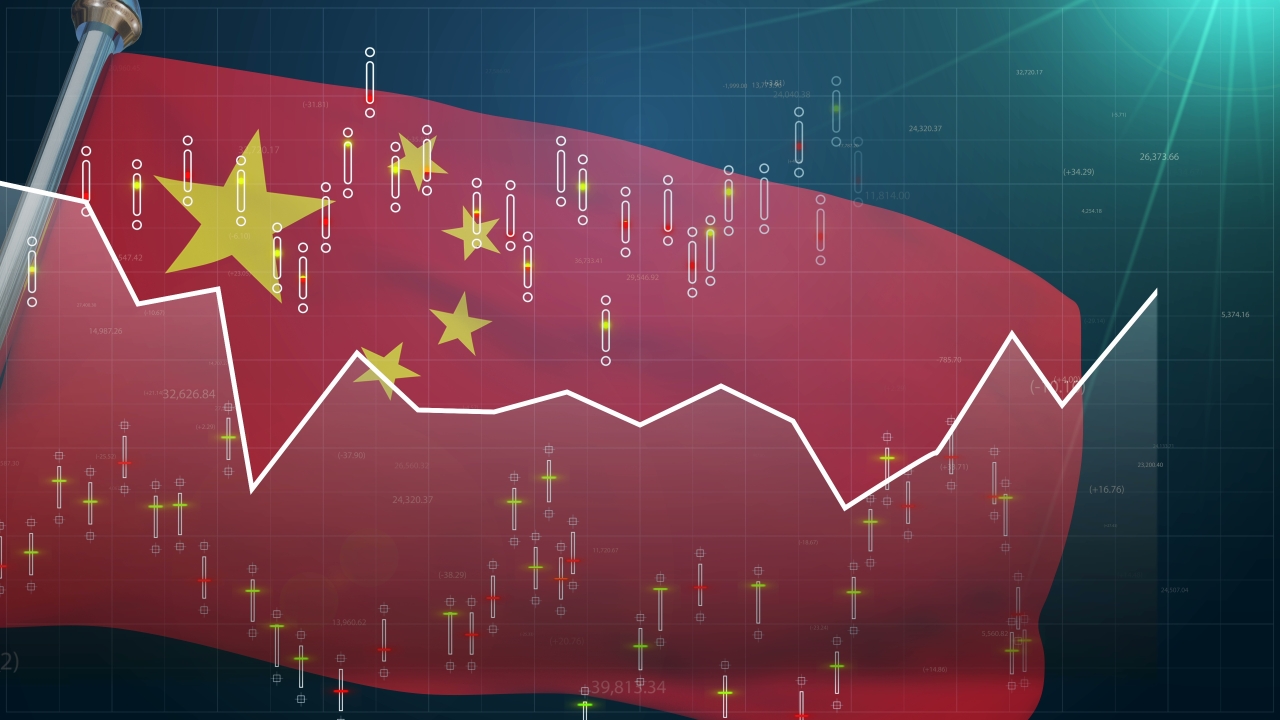But shouldn't China, therefore, also want to rewire the present world order, and if so, in what way? This question arises now that China is the world's largest industrial producer and the second-largest national economy. The national empowerment process is well-advanced, to say the least: China has already become a very powerful, wholly sovereign nation-state. But does it want to be more than a powerful nation inserting itself into an America-centric world, its communist party-state model forming a political deviation from the dominant liberal-democratic norm of the West? In other words: Does it just want security and some tolerance for its political and cultural otherness, or does it want to recalibrate, reorder, and possibly even re-center the world order?
In recent years, prominent Chinese academics such as Zhao Tingyang (趙汀陽), Xu Jilin (许纪霖), Jiang Shigong (强世功), and Jin Huimin (金惠敏) have been trying to formulate blueprints for exactly such a fundamental global rewiring. They theorize about a new Chinese sense of cosmopolitanism, redefine political universalism, and sketch out visions of a harmonious global future in which Chinese traditional wisdom plays a unique role. There are essential differences among the thinkers mentioned, but all draw on a distinct Chinese tradition of idealism in which harmony—the harmonious co-existence of cultural and political particularities—is the key concept.
This cosmopolitan idealism is a secondary thread in Chinese political thought, alongside the primary focus on national empowerment. However, one should not overestimate the distinction between the two threads; it is more of an analytical tool for mapping out a much more complex ideological landscape. In China's political and political-philosophical discourses, the cosmopolitan idealism and national empowerment strands usually intertwine because the idea of national empowerment entails spiritual growth and domestic harmony, while a confident, empowered China is deemed key to bringing about world harmonization.
To understand both threads, we need to go back to the world imagining of the imperial China that went down in 1911. From the first dynasty, the Qin (221 – 206 BC), to the last dynasty, the Qing (1644 – 1911 AD), China was ruled intermittently by imperial dynasties. In the cosmological view that dominated two millennia of Chinese imperial history, the Chinese core region—zhōngguó, the Middle Kingdom—was the world-centering empire. The Chinese emperor, as the “son of heaven,” tiānzi, was the connecting point between tiān, the heavenly order, and earthly life, the tiāxià, “everything under heaven.” Tianxia simultaneously and alternately stood for the human world, the civilized world, the territories under the emperor’s influence, and a harmonious societal order that correctly reflected the harmonious heavenly order. Barbarians regularly invaded from what from the Center appeared to be the far corners of the world, but this did not shake the Sinocentric imperial world imagination. Its centering of civilization and legitimacy in the imperial core, its vision of China as the world-civilization-carrying empire, remained ideologically viable for centuries, at least within China’s (Neo-)Confucian intelligentsia.
The situation changed in the nineteenth century when Western powers invaded. These powers proved militarily, technologically, scientifically, and, as it eventually painfully transpired, organizationally superior. Later, industrialized Japan also came marching in, lusting for territorial expansion. The modern superpowers were snatching bits of China, dividing among themselves the areas with the greatest potential for international trade as if cutting up a pie. Trading ports under foreign authority arose along coasts and rivers. China was dotted with such small European and later larger Japanese colonies, had to sign unequal trade treaties, and lost every war it fought. Nationalist Chinese intellectuals in the early twentieth century later referred to this period as “the Century of Humiliation,” which began in 1839 with the first Sino-British War. The Communist Party later declared that the Century of Humiliation had come to an end with the proclamation of the People’s Republic in 1949 under Mao. The dating is somewhat opportunistic; the end year could also be put earlier or later. But in any case, the term refers to a uniquely humbling phase in Chinese history in which the image of China as the bearer of world civilization proved no longer tenable.
Intellectuals and politicians responded by reinterpreting China as a national state among other states, some of which were much more advanced and powerful. China, they judged, was in dire need of modernization and a patriotic national spirit to hold its own in the march of nations. From this sprang the near-obsessive quest for national empowerment that dominantly shapes Chinese political thought to this day—a quest that, I imagine, must be easy to understand for Hungarian readers, whose modern political tradition also assigns much weight to sovereignty and national emancipation.
But increasingly, there are also moves to resurrect something of the old cosmopolitan, universalizing spirit of imperial China. The old empire is not coming back, but perhaps its ancient harmony ideal can inspire the twenty-first century. The former General Secretary of the Communist Party, Hu Jintao, dropped the term Harmonious World (和谐世界) in a speech in 2005. And around the same time, in mainland Chinese academia, philosopher Zhou Tingyang founded the Tianxia School of world philosophy, advocating the advent of a tianxia utopia. This tianxia will not be limited to East Asia but involve all of humanity in a harmonious global order in which rivalries will disappear, and cultural and political diversity will be universally respected. Intellectual historian Xu Jilin, another prominent thinker of the Tianxia School, summarizes its credo this way: “We need a form of thought that can act as a counterpoint to nationalism. I call this thought the ‘new tianxia,’ an axial civilizational wisdom that comes from China’s pre-modern tradition, interpreted anew along modern lines” (“The New Tianxia,” translated and quoted by the blog Translating the Chinese Dream).
Zhao and Xu both stress that they are not arguing for a revived Chinese imperialism but that the tianxia they envision will be “de-centered” and “non-hierarchical.” China would not be the leader country; it would stand on an equal footing with other (large) countries. But what complicates their anti-imperialist self-presentation is that they assign an exceptionalist status to Chinese culture and tradition. Xu insists that China must live up to its world-historical mission as a global nation: “China is a cosmopolitan power, a global nation that bears Hegel’s ‘world spirit.’ It must take responsibility for the world and for the ‘world spirit’ it has inherited. This “world spirit” is the new tianxia that will emerge in the form of universal values.” Similarly, Zhao claims that China already carries the seed of a globally harmonized world within itself: “China is a ‘microcosm’ of tianxia because China is a ‘world-patterned state’ that takes tianxia to be internal to its structure.”
Jiang Shigong, an outspoken political philosopher and public intellectual, is even blunter. He prophesizes the rise of a Sinocentric “world empire 2.0” that is to replace the current Anglo-American world empire (see his essay “超大型政治实体的内在逻辑”). It is beholden to China’s political tradition, he contends, that China should transcend the level of nations and act on behalf of the world as a whole. “Classical Chinese politics has always pursued the universalism of ‘taking the world as one’s own,’ only having the perspective of ‘the world’ and ‘civilization,’ not a narrowly national or ethnic one.” He asserts that there is no risk that an ecumenical, globe-leading China would dominate other cultures, countries, and political systems because Chinese culture is essentially non-dominating in character. In contrast to Western culture, which seeks to drive through its positions at the expense of others, Chinese culture harmonizes antagonisms, or so Jiang argues (see his essay “哲学与历史”).
In contrast, literary theorist Jin Huimin rejects this kind of cultural chauvinism. Jin’s position is that China will be a genuinely cosmopolitan—or, in his wording: universal—nation exactly when it accepts that it is just a nation alongside other nations and gives up on exceptionalist claims. Ironically, he identifies such claims as nationalistic. “China … has witnessed the breeding of cultural nationalism in the wake of its growing economic, military, and political influence. For those cultural nationalists, Chinese culture is far superior to its Western counterpart: the former is a paragon of virtue, while the latter is rotten and in decline” (Jin Huimin, Telos 195, 93–113). The irony here is that the thinkers dismissed by Jin as nationalistic—philosophers such as Jiang—actually strive to overcome nationalism by transcending the nation. In the end, all the here-discussed theorists claim to oppose nationalism, but what they mean by this differs wildly.
In conclusion, in contemporary Chinese political discourse, the relations between the categories of China, nation, and world are very much under dispute. Much is on the move, politically and philosophically. In the twenty-first century, an arisen China will again have to search for its role in the global order, an order it might be able to reshape fundamentally, which raises profound ideological questions. Does China want to be just another large country? Can it be just that? Would it accept such a mundane status? Or does China long to be the exemplary world nation, and, if so, of what kind of world?









